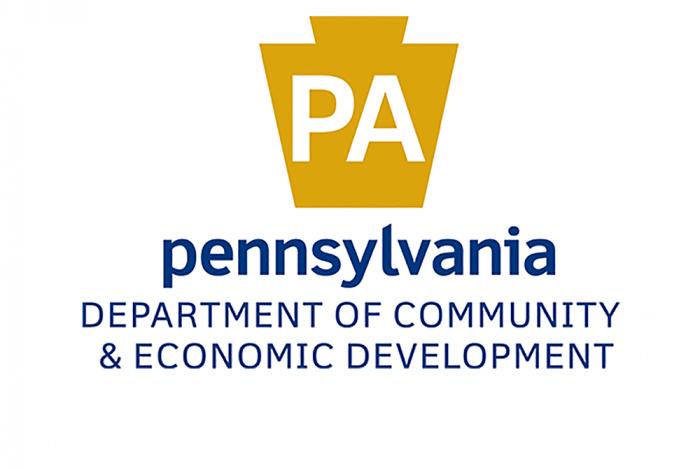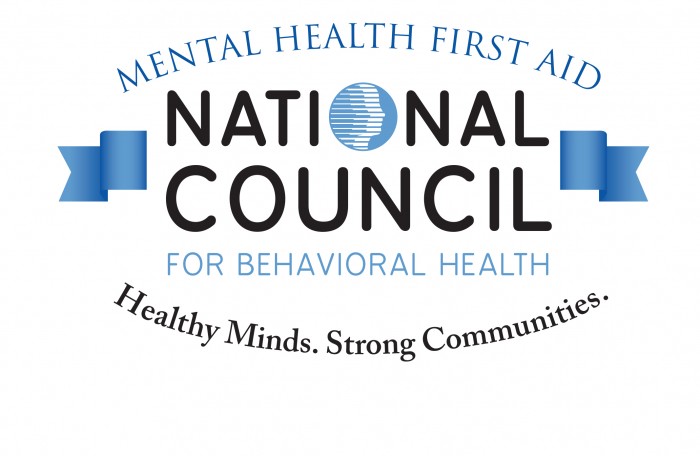RELIAS Free Webinar: “Talking to Kids About COVID-19”
Thursday, June 18, 2020 – 3:00 pm
RELIAS is offering this free resource:
The COVID-19 pandemic is incomprehensible for even the most informed adults. For children, many of whom had their daily routines abruptly interrupted and replaced by confusing new restrictions on their ability to study, play with friends, and even celebrate birthdays, this can be a particularly confusing and stressful time.
How do we speak to our children about COVID-19, especially as we navigate our own health and financial anxieties, and strive to balance work, home life, and supporting their educational needs?
Join Dr. Erin O’Callaghan (Program Director for the California School of Professional Psychology in the Los Angeles PsyD program at Alliant International University) and Dr. Ronald Stolberg (Professor in the California School of Professional Psychology in the San Diego PsyD program at Alliant International University) as they provide guidance on the developmentally-appropriate options for speaking to children in ways that support their health and the well-being of the entire family.
No Child Welfare County Funding Allocation Reduction
During the Pennsylvania Child Welfare Council (Council) call on June 10, 2020 and the All-County call hosted by OCYF on June 11, 2020, OCYF shared that the County Child Welfare (CCW) Appropriation reflected a nearly 13% reduction over the Governor’s tentative budget. Following these calls, many of the Council members and county agencies raised concerns regarding the impact a budget reduction would have on their child welfare program. Since that time, clarifications were received from the Governor’s Budget Office and members of the Legislature regarding the intent to address the remaining CCW Appropriation need as part of a future supplemental bill. Therefore, no reductions to the tentative allocations shared with counties in March 2020 are planned at this time. If you have any questions or feedback, please contact RCPA Children’s Director Jim Sharp.
Pennsylvanians Must Remain Vigilant about Preventing Child Abuse and Keeping All Kids Safe
FOR IMMEDIATE RELEASE
June 11, 2020
Harrisburg, PA – Today, Department of Human Services (DHS) Secretary Teresa Miller urged Pennsylvanians to remain vigilant in our shared responsibility to keep all children safe and prevent child abuse. DHS administers ChildLine, which is a 24/7 hotline available to anyone concerned for the safety or well-being of a child. To report a concern, call 1-800-932-0313.
“While Pennsylvania begins to reopen and some of our lives get back to something close to normal, I want to remind my fellow residents that there are many people – particularly among vulnerable populations – who will continue to feel the effects of this public-health crisis for many months and years to come. And some are still in the shadows,” Secretary Miller said. “We all have a role to play to keep children safe. If you suspect a child is being abused or neglected, please call ChildLine to make a report.”
In the weeks immediately following the implementation of aggressive social-distancing measures to slow the spread of the coronavirus, DHS saw a roughly 50 percent decline in average daily calls to ChildLine compared to the same time period in 2019. This decrease in calls is most likely an unfortunate side effect of school closures and limited interactions between children, their teachers and other mandated reporters in school settings. Of the 39,040 reports made by mandated reporters to ChildLine in 2018, for example, more than a third were reported by school employees.
To address the reduction in calls, DHS has prioritized outreach to stakeholders and external communication efforts to encourage members of the public to be on the lookout for signs of abuse or neglect among children in their community and to call ChildLine if they suspect a child is in danger. Between May 1 and May 28 of this year, ChildLine received 14,181 calls from concerned citizens — down from 23,536 calls during the same time period in 2019, or a roughly 40 percent reduction.
“Calls to ChildLine normally drop during the summer months when schools are closed, but this should only reinforce our efforts to be vigilant about our responsibility to protect all children,” Secretary Miller said. “Each and every one of us can play a role in protecting children from abuse or neglect. Making the call to ChildLine allows trained child welfare professionals and, if necessary, law enforcement to follow up, collect information, and determine if assistive services or other intervention is necessary.”
Anyone can make a report to ChildLine. Anyone who is not a mandated reporter can make a report to ChildLine anonymously. DHS is encouraging all Pennsylvanians to learn more about the signs of potential abuse or neglect and make a report to ChildLine if they begin to suspect abuse or neglect.
Signs of potential abuse or neglect can include:
- Numerous and/or unexplained injuries or bruises;
- Chronic, pronounced anxiety and expressed feelings of inadequacy;
- Flinching or an avoidance to being touched;
- Poor impulse control;
- Demonstrating abusive behavior or talk;
- Cruelty to animals or others; and,
- Fear of parent or caregiver, among others.
DHS also encourages parents and families who are struggling to cope during this time of crisis to reach out for help. Anyone struggling with mental health and in need of referrals to helpful programs can call Pennsylvania’s new Support & Referral Helpline, which is operated 24/7 by skilled caseworkers who can provide emotional support during this difficult period. The number to call is 1-855-284-2494. For TTY, dial 724-631-5600. Another helpful resource is the 2-1-1 hotline operated by the United Way, which can connect people and families to local resources that can help during the public health crisis.
MEDIA CONTACT: Erin James, [email protected]
# # #
New COVID-19 Funding Available for Pennsylvania Counties
FOR IMMEDIATE RELEASE
June 11, 2020
Harrisburg, PA – Today, Department of Community and Economic Development (DCED) Secretary Dennis Davin announced that new funding is available to 60 Pennsylvania counties under the COVID-19 County Relief Block Grant.
“As Pennsylvania continues on its road to recovery after efforts to mitigate the spread of COVID-19, it is critical that we provide any and all assistance to Pennsylvania’s communities and businesses in a widespread and expedient manner,” said Sec. Davin. “This new funding will help Pennsylvania’s counties repair, recover, and reimagine the future that is waiting post-COVID-19.”
Guidelines, applications, and eligible counties can be found here.
Under the program, $625 million was made available to Pennsylvania counties in Coronavirus Aid, Relief, and Economic Security (CARES) Act funding in the form of block grants administered by DCED. This funding may be used to offset the cost of direct county COVID-19 response, assist municipalities with COVID-19 response and planning efforts, fund nonprofit assistance programs, and deploy broadband to unserved or underserved areas.
Eligible expenditures must have been incurred between March 1, 2020 and December 30, 2020. Formula-driven funding will be made available to the 60 counties that did not previously receive direct assistance via the CARES Act, with a minimum allocation of $1 million. The counties that have already received direct assistance are Allegheny, Bucks, Chester, Delaware, Lancaster, Montgomery and Philadelphia.
Applications must be received by June 16, 2020. All applications for the County COVID-19 County Relief Block Grant must be completed and submitted online using DCED’s Single Application at dced.pa.gov or www.esa.dced.state.pa.us. Paper applications will not be accepted.
Applicants should carefully follow instructions outlined in the online Single Application and provide requested information. Questions can be directed to DCED Customer Service at 1-800-379-7448 or [email protected].
The CARES Act was passed by Congress and signed into law on March 27, 2020. The $2 trillion economic relief package aims to protect the American people from the public health and economic impacts of COVID-19. The CARES Act provides economic assistance for local governments and American workers, families, and small businesses.
For the most up-to-date information on COVID-19, Pennsylvanians should follow https://www.pa.gov/guides/responding-to-covid-19/.
MEDIA CONTACT: Casey Smith, [email protected]
###
Wolf Administration Outlines Impacts of Ending Disaster Declaration
HHS Announces Relief Fund Distributions for Safety Net Hospitals, Medicaid & CHIP Providers
Yesterday, the U.S. Department of Health and Human Services (HHS), through the Health Resources and Services Administration (HRSA), announced additional distributions from the Provider Relief Fund to eligible Medicaid and Children’s Health Insurance Program (CHIP) providers that participate in state Medicaid and CHIP programs. HHS expects to distribute approximately $15 billion to eligible providers that participate in state Medicaid and CHIP programs and have not received a payment from the Provider Relief Fund General Distribution. HHS also announced the distribution of $10 billion in Provider Relief Funds to safety net hospitals that serve our most vulnerable citizens. The safety net distribution will occur this week. For further information on provider eligibility and FAQs, please see the HHS website.
Message from National Council: Surgical Face Masks Still Available
Good Morning,
Here at the National Council we work to support the behavioral health community through advocacy, information exchange, resource development and even the acquisition of material goods for those in need.
If you need medical face masks, we still have a limited supply available for purchase. These masks come in batches of 200 and are being sold “at cost,” with shipping charges included. Secure your order today!
We expect these to ship within three working days of receiving your order. All masks will be shipped via UPS ground.
If you have any questions, please email [email protected] and we will be happy to help.
Thank you,
The National Council for Behavioral Health
OCDEL Creates New Virtual FBA Training
The Office of Developmental Programs (ODP) has announced the development of an updated virtual version of the required Functional Behavioral Assessments (FBA) training. The new FBA Training will be interactive and self-paced, and will replace the existing train-the-trainer model.
The virtual training is scheduled to be released in mid-June 2020. The virtual course will be housed on the MyODP Training & Resource Center. It will include a test component, but it will not include a face-to-face component.
- The virtual training will replace the existing 13-hour face-to-face training curriculum that you have been facilitating.
- Once the new FBA course has been released, the virtual Train the Trainer Course will be closed, and no new trainers will be authorized.
- Approved trainers may continue to facilitate the in-person training through July 31, 2020, and the online FBA Post-test will only be available until September 30, 2020.
- Any person who has taken the face-to-face FBA Training facilitated by a BAS-approved FBA trainer will have until September 30, 2020 to take the online FBA Post-test. The post-test will be closed and no longer available after September 30, 2020.
Key Features of the Updated Training:
The training focuses on the assessment and replacement of challenging behaviors, as well as the development of a treatment or behavior support plan that can be used across settings and across the lifespan.
- The examples, tools, and strategies outlined in this training are applicable to supporting individuals from childhood through adulthood.
- The course is divided into 8 Modules. The estimated time to complete all eight modules and all the tests is 13 hours, depending on your individual learning style.
- This course was designed to be responsive to the individual learner’s progress on tests and quizzes throughout the training.
- Traditional and Fast-Track options are available (dependent on test/quiz scores).
- A variety of direct and indirect assessment tools will be available to download.
Questions? Please email [email protected]
As further guidance is released we will update members. If you have questions, please contact RCPA Children’s Division Director Jim Sharp.
Governor Renews Disaster Declaration; Telehealth Extended
On June 3, 2020, Governor Tom Wolf renewed the 90-day disaster declaration that he originally signed on March 6, 2020. The Proclamation to extend the Disaster Declaration can be found here.
This renewal will, for the duration of the extended disaster declaration, extend the approval of telehealth as a means of service delivery. This is in conjunction with the original memorandum from DHS and OMHSAS, “Telehealth Guidelines Related to COVID-19 (Updated),” published on May 5, 2020. See the May 5 OMHSAS Telehealth Memorandum.
The continued use and approval of telehealth services has been reviewed and confirm with OMHSAS. If you have additional questions or feedback, please contact your RCPA Policy Division Director.














